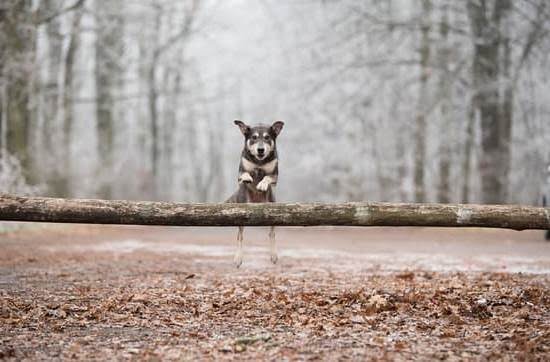Potty training is an essential aspect of raising a well-behaved and happy dog. One common question that many dog owners have is, “How old should a dog be to be potty trained?” The age at which a dog can be effectively potty trained can vary based on a variety of factors. Understanding these factors and the developmental stages of dogs is crucial in successfully potty training our canine companions.
The process of potty training plays a significant role in shaping a dog’s behavior and overall well-being. It not only helps maintain a clean living environment but also strengthens the bond between pet owners and their dogs. Factors such as breed differences, individual temperament, and personality can impact the age at which a dog can be potty trained. Recognizing the importance of these factors can help set realistic expectations for pet owners embarking on the potty training journey.
In this article, we will delve into the different developmental stages dogs go through, understanding how these stages impact the potty training process. Additionally, we will discuss early potty training techniques for puppies and provide tips for recognizing signs that a dog is ready to be potty trained.
Furthermore, we will address common obstacles that pet owners may encounter during the potty training process and provide strategies for overcoming these challenges. With this comprehensive guide, pet owners can gain valuable insights into successfully navigating the potty training journey with their furry friends.
Understanding the Developmental Stages of Dogs
When it comes to potty training, understanding the developmental stages of dogs is crucial. Just like humans, dogs go through different developmental phases as they grow, and each stage can have an impact on their ability to be potty trained. Here is a breakdown of the different developmental stages in a dog’s life:
- Neonatal Stage (0-2 weeks): During this stage, puppies are completely dependent on their mother and are unable to control their bodily functions. This is not the stage at which potty training should begin.
- Transitional Stage (2-4 weeks): Puppies begin to explore their surroundings and develop basic social skills during this stage. While they may start to show some control over their bowel movements, they are still not ready for potty training.
- Socialization Stage (4-12 weeks): This is a critical period for puppies and an ideal time to start potty training. They begin to learn from their environment and can start understanding basic commands. This stage sets the foundation for successful potty training.
As pet owners consider how old should a dog be to be potty trained, it’s important to take into account the specific developmental stage of their furry friend as this will greatly influence the success of the process. The earlier you start introducing potty training methods during these crucial stages, the easier it will be for your dog to learn and adapt.
Puppies are generally considered ready for potty training between 12-16 weeks of age, but this can vary depending on factors such as breed differences and individual temperament. It’s essential for pet owners to be patient and consistent while working with their dogs through various developmental stages in order to achieve successful potty training results.
Factors Affecting Potty Training Age
Breed Differences and Impact on Potty Training
When it comes to potty training, the age at which a dog can be successfully trained varies depending on their breed. Smaller breeds tend to have smaller bladders and higher metabolisms, which means they may need to go outside more frequently than larger breeds.
Additionally, certain breeds are known for being more stubborn or independent, which can also impact the potty training process. Understanding these breed differences is crucial in determining the appropriate age to start potty training for each individual dog.
Temperament and Personality
In addition to breed differences, a dog’s individual temperament and personality can also play a significant role in the age at which they can be effectively potty trained. Some dogs may be eager to please and quick learners, making them ready for potty training at a younger age.
On the other hand, more aloof or headstrong dogs may require more time and patience when it comes to potty training. It’s important for pet owners to consider their dog’s unique traits when determining when to begin the potty training process.
Health Considerations
Another factor that can influence the age at which a dog is ready for potty training is their overall health. Dogs with certain medical conditions or physical limitations may struggle with controlling their bladder or bowels, making it necessary to delay potty training until these issues are resolved.
Additionally, elderly dogs may experience urinary incontinence as they age, requiring special considerations when it comes to potty training. Understanding these health considerations is essential in determining the right time to start potty training for each individual dog.
By taking into account breed differences, temperament and personality traits, as well as any health considerations, pet owners can better determine the appropriate age at which their dog should be potty trained. Understanding these factors will help set realistic expectations and ensure a successful potty training process for both the pet owner and their furry companion.
Early Potty Training Techniques
Overview of Early Potty Training Methods for Puppies
Potty training a puppy can be a challenging task, but starting early can set the foundation for successful training. One common method is crate training, where the puppy is kept in a crate when unsupervised and taken outside to eliminate at regular intervals. This helps teach the puppy to hold it until they are let outside.
Another technique is using positive reinforcement, such as giving treats or praise when the puppy eliminates outside. This method helps the puppy associate going potty in the right place with something positive.
Tips and Tricks for Starting the Potty Training Process as Early as Possible
When it comes to early potty training, consistency is key. Establishing a routine for taking the puppy outside to eliminate can help them learn where they should go potty. It’s also important to closely monitor the puppy’s behavior and look for signs that they need to go, such as sniffing around or circling. Additionally, cleaning up accidents properly with an enzymatic cleaner can help remove any lingering scent, reducing the likelihood of repeat accidents in the same spot.
Understanding Developmental Stages and Their Impact on Potty Training
It’s important to consider a puppy’s developmental stages when beginning potty training. Younger puppies may have less control over their bladder and bowel movements, so patience is crucial during this time. As they grow older, their ability to hold it will improve, making potty training more effective. By understanding these stages and adapting training methods accordingly, pet owners can set their puppies up for success in becoming potty trained dogs.
Signs That a Dog Is Ready for Potty Training
Potty training a dog is an essential part of their development and helps create a clean and comfortable environment for both the pet and its owners. While the age at which a dog can be potty trained varies depending on several factors, it is important to recognize the signs that indicate when a dog is ready to begin the potty training process.
One of the most important factors to consider when determining when to start potty training a dog is their developmental stage. Puppies go through different stages of development, including the neonatal, transitional, socialization, juvenile, and adolescent stages. Each stage has its own impact on a dog’s ability to control their bladder and bowel movements. It is crucial for pet owners to understand these developmental stages in order to effectively gauge when their dog may be ready for potty training.
In addition to developmental stages, breed differences also play a role in potty training readiness. Smaller breeds tend to have smaller bladders and may need more frequent bathroom breaks compared to larger breeds. Additionally, individual temperament and personality traits can influence a dog’s readiness for potty training. Some dogs may display signs of independence and alertness earlier than others, indicating that they are more capable of being potty trained at an earlier age.
Another key indicator that a dog is ready for potty training is their behavior. Signs that a dog is ready include consistently waking up from naps without any accidents, sniffing around in circles as if searching for a spot to relieve themselves, or showing discomfort when they need to go outside.
On the other hand, cues indicating that a dog may be struggling with potty training include frequent indoor accidents despite previous progress or an aversion to going outside for bathroom breaks.
Recognizing these signs can help pet owners determine when it is appropriate to start the potty training process with their dogs. By being aware of these indicators and understanding how they are influenced by developmental stages and individual characteristics, pet owners can set realistic expectations and initiate successful potty training methods at an appropriate time for their furry companions.
Setting Realistic Expectations
Potty training a dog is an essential part of their development and well-being. However, it’s important for pet owners to understand that every dog is different, and the age at which they can be successfully potty trained varies.
One common question that many pet owners have is “how old should a dog be to be potty trained?” The answer to this question depends on a variety of factors, including the breed of the dog, their individual temperament, and the consistency of the training methods used.
When considering potty training, it’s crucial to understand that a dog’s developmental stages play a significant role in the process. Puppies go through various stages of physical and behavioral development as they grow. Understanding these stages can help pet owners determine when their dogs are ready to begin potty training. For example, very young puppies may not have full control over their bladder and bowel movements, making it more challenging to start potty training at an early age.
Breed differences also impact the age at which a dog can be successfully potty trained. Smaller breeds typically have smaller bladders and may need more frequent bathroom breaks compared to larger breeds. Additionally, a dog’s individual personality and temperament affect their readiness for potty training.
Some dogs may catch on quickly and easily adapt to the training process, while others may require more time and patience. With these considerations in mind, setting realistic expectations for potty training is essential for pet owners to avoid unnecessary frustration and stress.
| Factors Affecting Potty Training Age | Impact |
|---|---|
| Breed Differences | Different breeds may need different timelines for successful potty training due to varying bladder sizes |
| Temperament | A dog’s individual personality affects how quickly they can adapt to the potty training process |
| Developmental Stages | Puppies go through different stages of development which impacts their ability to control bladder and bowel movements |
Addressing Challenges in Potty Training
Potty training a dog can be a challenging process, especially for first-time pet owners. There are various factors that can impact the age at which a dog can be successfully potty trained, and it’s important for pet owners to understand these challenges in order to effectively address them. One common obstacle that pet owners may encounter is the breed differences in dogs.
Different breeds may have different predispositions towards learning and behavior, which can affect the potty training process. For example, some breeds may be more stubborn or independent, making them more difficult to train at a younger age.
Additionally, a dog’s individual temperament and personality can also play a significant role in their ability to be potty trained at a certain age. Some dogs may be more eager to please their owners and therefore may catch on to potty training quicker, while others may take longer to grasp the concept. Understanding these differences in breed and temperament is crucial in addressing the challenges of potty training.
Another challenge that pet owners may face is recognizing when their dog is struggling with the potty training process. This could manifest as accidents in the house despite previous progress, or an overall lack of improvement over time. It’s important for pet owners to pay attention to these signs and adjust their approach accordingly in order to effectively address any setbacks in potty training.
By acknowledging and understanding these challenges, pet owners can develop effective strategies for overcoming them and maintaining progress in their dog’s potty training journey. Patience, consistency, and positive reinforcement are essential components of successful potty training, and by remaining committed to the process, pet owners can help their dogs overcome these challenges and develop good bathroom habits.
Conclusion
In conclusion, potty training is a crucial aspect of a dog’s early development and can significantly impact their overall behavior and well-being. The age at which a dog can be effectively potty trained varies depending on factors such as breed, temperament, and individual development stages. While it is important to start the potty training process as early as possible, it is equally important for pet owners to be patient and understanding throughout the journey.
Understanding the developmental stages of dogs is essential in determining the best approach to potty training. Puppies go through various stages of development, each impacting their ability to control their bladder and learn appropriate elimination behaviors. Additionally, recognizing the signs that a dog is ready for potty training and setting realistic expectations are crucial in ensuring a successful training process.
Overall, while there may be challenges along the way, consistency and positive reinforcement play key roles in achieving success with potty training. By addressing obstacles as they arise and staying committed to the process, pet owners can help their dogs develop good bathroom habits that will benefit them throughout their lives.
With an understanding of the factors that impact potty training age and a supportive approach, pet owners can set their dogs up for success in this essential aspect of their care.
Frequently Asked Questions
Can an 8 Week Old Puppy Be Potty Trained?
Yes, an 8-week-old puppy can begin the potty training process. While they may not be fully trained at this age, it’s important to start establishing good habits and a routine to help them learn where to go potty.
When Should a Dog Be Fully Potty Trained?
A dog is typically fully potty trained by the time they are 4-6 months old. However, some dogs may take longer to fully grasp the concept. Consistency, positive reinforcement, and patience are key in helping a dog become fully potty trained.
At What Age Is It Too Late to Potty Train a Dog?
It is never too late to potty train a dog. While it may be more challenging to train an older dog, it is still possible with dedication and patience. Understanding the reasons behind their accidents and using positive reinforcement can help in successfully potty training an older dog.

Welcome to the blog! I am a professional dog trainer and have been working with dogs for many years. In this blog, I will be discussing various topics related to dog training, including tips, tricks, and advice. I hope you find this information helpful and informative. Thanks for reading!





